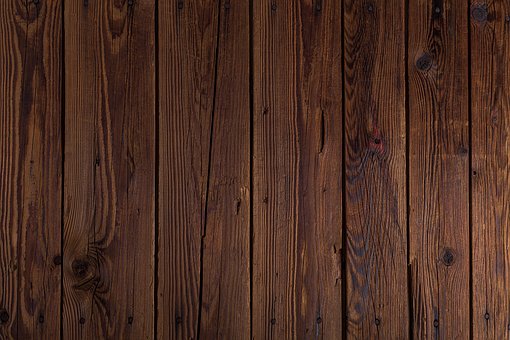A quick Google search for decking will fire back a surprising amount of results, featuring a wide variety of deck options for you to choose from.
As a result, picking out the decking material that’s right for you and your home can be a lot trickier than you might think.
To help you get to grips with each of these woody resources and, more importantly, the pros and cons of each, here’s a brief introduction into different types of decking.

Common Types of Decking
Decking boards come in a myriad of shapes, sizes and colours, offering an equally diverse range of attributes.
For years, the three main options for those looking to deck out their outdoor space were softwood decking, hardwood decking or plastic decking.
Unfortunately, none of these materials offered a comprehensive, long-term solution to domestic decking needs., as you can see below.
Softwood Decking
Softwood decking requires extensive maintenance to keep it in tip-top condition, necessitating regular staining and treating from year-to-year.
Even with such treatment, softwood decking may still warp and crack, while this material is also very absorbent, making it highly susceptible to mould and algae.
Meanwhile, traditional wood is also notably difficult to install at times, with knots in the wood a natural obstacle resulting in wasted materials.
Hardwood Decking
While hardwood decking may be a safer option than softwood decking, it will still need a lot of maintenance to keep its looks over time, requiring continued stripping, staining and oiling.
In addition to being time-consuming, this also involves the introduction of chemicals which can be harmful to the environment.
Much like softwood, hardwood decking can also be difficult to install and has the potential to split and splinter over time.
Plastic Decking
While plastic may seem like a synthetic solution to the above issues, they often not fit for purpose when it comes to weather-resistance and can become very slippery underfoot when wet.
What’s more, while they may benefit from less maintenance than traditional wood, they are also less sturdy and can bow and crack under stress.
Aesthetically, plastic decking also tends to look notably less impressive than wood, exuding a cheaper appearance that connotes a lack of quality.
Types of Composite Decking
While the above three options have many pitfalls in terms of appearance, practicality and upkeep, there is a better way to achieve your dream deck without the drawbacks.
Composite decking boasts all the aesthetic beauty of traditional wood decking with the low-maintenance benefits of synthetic materials, all with the added benefit of extreme durability and weather-resistance.
At DeckPlus, we specialise in composite decking and currently offer the following three avenues for you to explore when settling on the right material to suit your needs.
The newest innovation to hit the decking market in recent years, hollow composite decking is a budget-friendly solution to your composite decking needs.
Hollow composite decking is markedly less expensive than other kinds of composite decking allowing those without a sizeable savings fund to deck out their garden in style.
They are also extremely eco-friendly, benefitting from the recycled aspect of its composition, while also using less material than solid composite decking.
A step up from hollow composite decking boards, non-capped composite decking offers virtually unrivalled durability and design flair with a low-maintenance lifespan.
Providing beautiful wood-look decking without the upkeep of the real thing, uncapped composite decking is fade, stain and abrasion-resistant.
Non-capped composite decking is also inherently slip-resistant, boasting an extremely low absorption rate for enhanced traction.
A step up from uncapped decking, capped composite decking is arguably the most comprehensive decking solution available on the market today.
Featuring a protective polymer sleeve for enhanced durability, capped decking is virtually impermeable to moisture, making it ideal even in wet conditions.
Ideal for pool and hot tub surrounds, spills and splashes can simply be wiped clean, while social gatherings involving food and drink are also no match for the awesome resilience of capped composite decking.
So, there you have it: a frank assessment of the main types of decking available on the market today. For more information on any of the decking types mentioned in this article or to find out more about hollow or solid decking at DeckPlus, call 0800 028 8756 now or get in touch online using the link below.
Contact Us